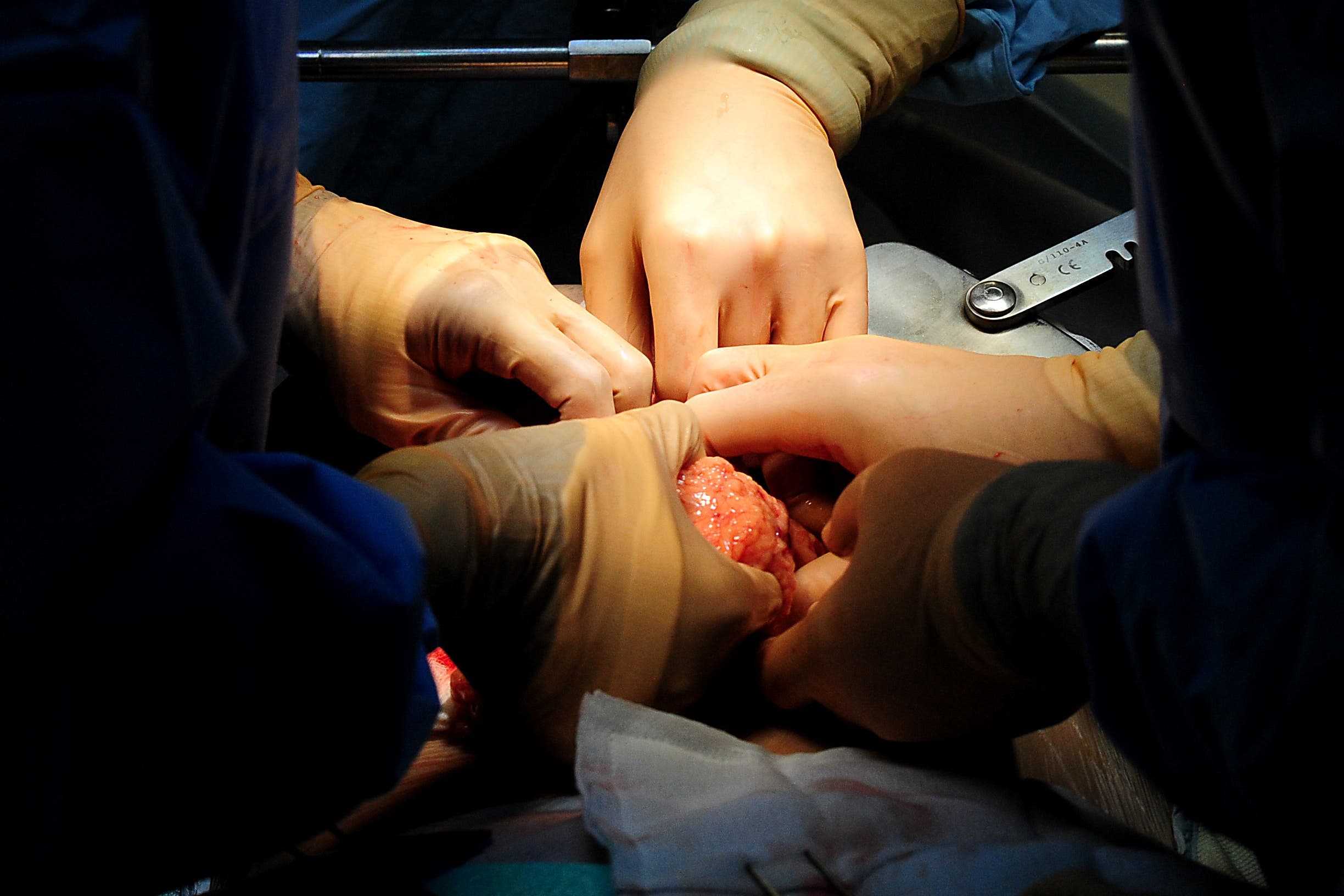UK’s first womb transplant paves way for dozens more
Surgeons have successfully transplanted a donor womb from one sister to another.

Your support helps us to tell the story
From reproductive rights to climate change to Big Tech, The Independent is on the ground when the story is developing. Whether it's investigating the financials of Elon Musk's pro-Trump PAC or producing our latest documentary, 'The A Word', which shines a light on the American women fighting for reproductive rights, we know how important it is to parse out the facts from the messaging.
At such a critical moment in US history, we need reporters on the ground. Your donation allows us to keep sending journalists to speak to both sides of the story.
The Independent is trusted by Americans across the entire political spectrum. And unlike many other quality news outlets, we choose not to lock Americans out of our reporting and analysis with paywalls. We believe quality journalism should be available to everyone, paid for by those who can afford it.
Your support makes all the difference.The UK’s first womb transplant means that, in future, dozens of women born without a functioning organ can carry babies of their own.
– What has happened?
Surgeons have performed the UK’s first womb transplant on a 34-year-old woman whose older sister donated the organ to her.
In a complex procedure, the medical team removed the womb from the 40-year-old woman and implanted it directly into her sister.
Both women have made a good recovery.
– Have any babies been born?
Not yet. Experts want to be sure the transplant is stable and the womb is functioning fully before the younger woman undergoes IVF.
She has stored eight embryos and will have fertility treatment later this year in central London.
The woman hopes to have more than one baby. Once she has completed her family, the womb will be removed to prevent her needing immunosuppressant drugs for the rest of her life.
– Has the NHS paid for the operation?
No. Each womb transplant costs around £25,000 and is fully funded by the charity Womb Transplant UK.
This includes payment to the NHS for theatre time and the patient’s stay on a ward.
The operations are only carried out at times when the NHS is not using the operating theatre, so they do not impact on usual NHS waiting lists.
Surgeons and medical staff involved in the transplant have not been paid for the operation and have given their time freely.
– Have other womb transplants been carried out around the world?
More than 90 womb transplants have been carried out internationally, with most operations involving a living donor.
The first successful womb transplant took place in Sweden in 2014, with the baby – Vincent – born to a 36-year-old woman who described him as “perfect”.
In 2000, a transplant was performed on a 26-year-old woman in Saudi Arabia but the donor womb survived for only 99 days due to problems with its blood supply.
To date, womb transplants have been carried out in more than 10 countries, including Saudi Arabia, Turkey, Sweden, the US, China, Czech Republic, Brazil, Germany, Serbia and India.
– How successful is the operation?
Data from the US shows that more than half of women who received a womb through a transplant in the US went on to have successful pregnancies.
Between 2016 and 2021, 33 women received womb transplants in the US and, as of last summer, 19 of them (58%) had delivered a total of 21 babies.
In 74% of those receiving a womb, the organ was still functioning one year after transplant and 83% of this group had live-born children.
– Will there be more transplants in the UK?
Yes. The second British womb transplant is scheduled to take place this autumn and experts believe a maximum of 20 to 30 per year could be carried out in the UK in the future.
Transplants could help women born without a functioning womb and those who lose their organ to cancer or other conditions.
Estimates suggest there are 15,000 women in the UK of childbearing age who do not have a functioning womb.
– Will there be a shortage of donor wombs?
Womb Transplant UK is running two programmes, one involving living donors and another with organs from people who have died.
The living donor programme in the UK has so far focused on women with relatives who are willing to give their wombs.
However, the team believes that in the future, the living donor programme will expand to include friends or altruistic living donors. This is currently more common in the US.
The use of deceased donors is assessed by the team on a case-by-case basis.